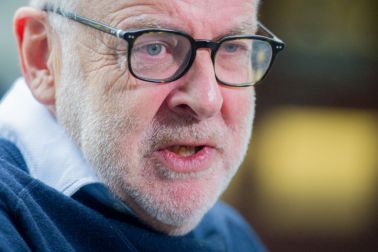NHS England, ostensibly wishing to respond to the challenge of childhood obesity, announced yesterday the introduction of ‘spy scales’ to monitor children’s weight remotely. These devices, which conceal the user’s weight, transmit data to an app that praises kids when they lose weight and offers guidance when they don’t.
But NHS England is missing the point. Whether the scales are justified depends entirely on how much they work to help kids lose weight, and NHS England appears to neither know nor care. That’s a pity, because knowing and caring about what works is its job.
Too often, the NHS is not a serious organisation
Smoking bans and taxes on cigarettes are highly intrusive, but they save lives; deaths from smoking have fallen hugely in response to public health meddling. Wearing masks during Covid, in contrast, was intrusive but didn’t work. You might still wish to smoke or to wear a mask, but understanding the impact is useful information. Efficacy is what determines an intervention’s value, not the intentions behind it. If these number-free weighing scales are helpful enough, their adoption would be justified.
The sad reality is that the NHS’s approach to obesity is not serious. We don’t test most of what we do, we don’t monitor effectiveness or value for money, we just intrude. This isn’t unique to the NHS approach to obesity, nor even to the NHS itself; it reflects a wider modern tendency. The state intervenes ever more, but on the basis of good intentions – and without robust efforts to measure impact. The result is that the state swells, growing less effective and less trustworthy.
NHS England and their National Clinical Director for Children and Young People offer impressive-sounding jargon about these scales – ‘cutting-edge technology’, a ‘game-changing tool’, ‘holistic’. According to a report in the Times, they have ‘already been tried by 350 families at 15 specialist clinics’. The reality is a sadly familiar example of bad science abetting poor politics.
A 2022 trial of the scales, with follow-up data published in early 2025, involved 107 children using the scales compared to 321 who didn’t. The trial lacked randomisation, had no blinding, suffered enormous dropout rates, and reported positive headline results. The reality is that the trial was so methodologically poor as to be useless. Had it been for a drug, where regulatory standards are often reasonable, the chance of receiving approval on the basis of this data would have been zero.
It’s incredible to think that scales that don’t display weights, sending kids automated messages via an app, will help them lose weight. But finding it incredible is irrelevant. We do experiments because the world is surprising and expectations are a poor guide for reality. If the scales work well enough, we should welcome them. The trouble is, we don’t know if they do and we’re making no attempt to find out.
Too often, the NHS is not a serious organisation. If it were, it would be introducing these scales only as part of a study capable of reliably determining their impact. Instead, it’s planning to use them without any of the scientific rigour that would allow their effectiveness to be known. That’s not taking obesity seriously but is a waste of our money – and the hopes and efforts of these children – for appearance’s sake. The NHS isn’t being dishonest. They’re not trying to lie about effectiveness; they simply haven’t even reached the point of caring what effectiveness actually is.
What helps with childhood obesity? Banning adverts for junk food, bracing PE lessons, dietary advice, weight loss surgery, drugs, youth clubs? Discovering the answer involves science and science is not intellectually difficult. There’s nothing complex about a randomised trial. But they take a willingness to admit we can’t divine answers without them, and some logistical effort. NHS England would rather not bother.
In medicine, this failure to test our ideas meant that for millennia we killed more people than we saved. Our interventions were well-meaning and based on our best theories and most careful observations, but they weren’t based on science, and they did more harm than good. Medicine got better not chiefly through improvements in technology but in technique. We learnt to accept that we couldn’t guess what worked; that there was so much natural variation in the world that randomised blinded trials were often the only way to distinguish truth from wishfulness.
If even the doctors at NHS England can’t maintain that humility, then the politicians and civil servants don’t have a chance. No one likes putting their favoured ideas to the test, and policy makers have not been raised to think they need to. They do. We have the tools to find out which of our interventions work, and we don’t make the effort. We don’t measure the impact of our choices, or endlessly look to refine and improve them. We govern, instead, through untested good intentions and so, as a result, we govern badly.







Comments